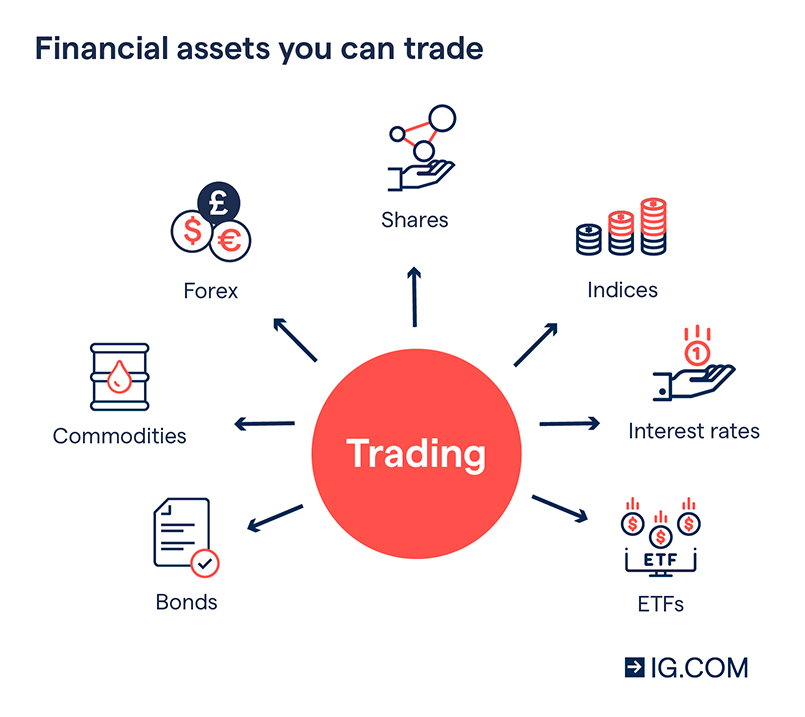Greetings and welcome to the realm of foreign exchange trading, wherein currencies are exchanged on a worldwide platform. This exhaustive guide aims to examine fundamental concepts and terms from the glossary of forex trading, alongside significant indices that can assist you in comprehending and navigating the currency markets. Irrespective of one’s level of expertise or lack thereof, this guide will function as a navigational aid, enabling one to confront the intricacies of the forex domain with assurance and lucidity.
A Brief Overview of the Forex Trading Glossary and Indices
This section shall delve into fundamental concepts and terms that are indispensable for any forex trader to be aware of. In addition to enhancing your comprehension of the forex market, knowledge of these terms will facilitate effective communication with other traders and industry professionals.

Pairs of currencies
Currency combinations serve as the fundamental components of foreign exchange trading, symbolizing the rate of exchange between two distinct currencies. The EUR/USD symbol, for instance, signifies the rate of exchange between the US Dollar and the Euro. In the forex market, knowledge of currency pairings is crucial for executing trades and analyzing market movements.
Ask Price and Bid Price
Similar to a conventional marketplace, the bid and ask prices represent the purchase and sell prices. Ask price denotes the cost at which traders are able to purchase a currency pair, whereas the bid price indicates the cost at which traders can sell the combination. Distinction between the ask and bid prices; it signifies the expense associated with executing a foreign exchange transaction.
Pip
Percentage in point” (Pip) represents the smallest unit of currency exchange rate price movement. Forex traders quantify price movements in points, analogous to how mariners quantify distances in nautical miles. One pip is equivalent to 0.0001 for the majority of currency pairings, with the exception of those involving the Japanese Yen, in which it is equivalent to 0.01.
Utilize Leverage
Similar to how the wind in a sailor’s sails can magnify prospective gains and losses, leverage magnifies both in forex trading. Traders can exert greater control over market positions with a reduced amount of capital by utilizing leverage. Leasing increases the risk of incurring losses while increasing the potential for profits; therefore, it is critical to employ leverage prudently and effectively manage risk.
🎯 Get My FREE YouTube Growth Guide!

An Examination of Fundamental Forex Trading Indices
This section will explore significant indices that can offer valuable insights into the performance and overall condition of the foreign exchange market. Gaining comprehension of these indices can facilitate the assessment of market sentiment, the detection of trends, and the formulation of more informed trading judgments.

Indices of Major Currencies
Comparable to barometers of the foreign exchange market, significant currency indices monitor the performance of prominent currency pairs relative to a collection of alternative currencies. The US Dollar Index (DXY), which measures the value of the US Dollar relative to a basket of six main currencies, is an example of a major currency index. These indices offer valuable insights into the relative strength or frailty of a specific currency in comparison to its counterparts.
Indices of Volatility
Similar to storm monitors on the foreign exchange market, volatility indices quantify the degree of price volatility on the market. The volatility indices CVIX (Currency Volatility Index) and VIX (Volatility Index) are two such examples. By offering valuable insights into market sentiment, these indices enable traders to proactively anticipate potential price fluctuations and subsequently adapt their trading strategies.
Indices of the Economy
Comparable to the economic gauges of the foreign exchange market, economic indices quantify a variety of economic metrics and indicators that can affect currency values. The Consumer Price Index (CPI), the Gross Domestic Product (GDP), and the Purchasing Managers’ Index (PMI) are all examples of economic indices. These indices have the capacity to impact currency valuations and central bank policies by providing insight into the health of economies.
Indices of Sentiment
Comparable to mood rings on the foreign exchange market, sentiment indices assess investor confidence and market sentiment. The Investor Sentiment Index and the Fear and Greed Index are both illustrations of sentiment indices. These indices offer valuable insights into market psychology and can assist traders in assessing the dominant sentiment as well as fluctuations in sentiment within the market.
Practical Suggestions for Utilizing Forex Trading Glossary and Indices
This section will furnish pragmatic advice on how to efficiently employ indices and forex trading glossary terms throughout your trading endeavors. Utilizing the power of terminology and indices to improve your trading strategy and decision-making will be facilitated by the following advice.

Vocabulary Development
Similar to how schooners acquire proficiency in the maritime language, forex traders ought to expand their lexicon with foreign exchange trading terminology and principles. Invest some time in acquainting yourself with the terminology contained in the glossary for forex trading. Should you come across any unfamiliar terms, do not hesitate to inquire or seek clarification.
Remain Informed
Maintain knowledge of crucial economic indicators and forex trading indices that can affect currency values. Similar to how intrepid mariners consult weather forecasts prior to embarking on journeys, traders ought to remain vigilant regarding economic releases, announcements from central banks, and geopolitical events that have the potential to impact market sentiment and price fluctuations.
Utilize indices as confirmatory tools
Utilize forex trading indices to validate your trading decisions as confirmatory instruments. Traders ought to seek incongruity between various indices and indicators prior to initiating a trade, much like how mariners employ a variety of instruments to navigate. Before making a trading decision involving USD pairs, you might seek additional confirmation from economic indicators or sentiment indices, for instance, if a significant currency index indicates that the US Dollar is strengthening.
Demonstrate Discipline and Patience
Demonstrate discipline and perseverance in your trading approach. Traders ought to adhere to their trading plan and refrain from making impulsive or emotional trading decisions, just as mariners maneuver through turbulent waters with perseverance and prudence. Always keep in mind that forex trading success necessitates a strategic outlook over the long term and the capacity to adjust to dynamic market conditions.
Avoiding Common Pitfalls
This section will elucidate prevalent challenges that traders should strive to circumvent when employing indices and forex trading glossary terms. You can drastically reduce the likelihood of errors and setbacks in your trading endeavors by remaining cognizant of these hazards.
Analysis Complicated an Excessive Aspect
Try to refrain from complicating your analysis with superfluous jargon or excessive complexity. Akin to how sailors maintain straightforward navigation, traders ought to concentrate on the fundamentals and refrain from becoming overly entangled in an excessive number of indicators or indices. Maintain a focus on clarity and efficacy when developing your trading strategy.

Disregard for Fundamental Analysis
Incorporating fundamental analysis into your trading strategy is vital. Similar to how intrepid sailors consider tides and weather patterns, currency value-influencing economic indicators and geopolitical events warrant the attention of traders. Neglecting fundamental analysis may result in unanticipated market losses or missing opportunities.
Risk Management Neglect
Risk management principles should never be disregarded in trading endeavors. Traders should manage their risk exposure through stop-loss orders, risk-reward ratios, and appropriate position sizing, just as mariners equip themselves with life jackets and safety equipment in anticipation of emergencies. Even with accurate analysis, neglecting risk management may lead to substantial financial losses.
Inability to Adjust
Maintain a flexible and adaptable trading strategy. Similar to how intrepid sailors adapt their course to altering conditions, traders must exercise the same flexibility and adjust their strategies by the changing dynamics of the market. Neglecting to adjust to evolving market conditions may result in foregone prospects or financial losses.
Practical Guidelines for Employing Forex Trading Glossary and Indices
Enhance Your Vocabulary
Acquiring a forex trading vocabulary is comparable to mastering the market’s language; it facilitates effective communication and comprehension. Begin by acquainting oneself with fundamental concepts, including leverage, bid and ask prices, currency pairs, and decimals. It is advisable to proactively investigate novel terminology and request elucidation when necessary. Similar to how an osier gains knowledge of celestial bodies to aid in navigation, augmenting one’s trading lexicon will grant one the ability to maneuver the foreign exchange market with assurance and lucidity.
Remain Informed
It is vital to remain current on forex market developments to make well-informed trading decisions. Vigilantly monitor currency values-influencing economic indicators, central bank announcements, and geopolitical events. Similar to how an asteroid observes meteorological predictions before embarking, remaining informed about market developments and news enables one to foretell possible price fluctuations and adapt one’s trading approach correspondingly.
Utilize indices as confirmatory tools
Forex trading indices function as indispensable confirmatory instruments that authenticate one’s trading judgments. Consider the confluence between various indices and indicators before executing a trade to increase your conviction. For example, before engaging in a trade involving USD pairings, verify the strength of the US Dollar through economic indicators or sentiment indices, should a significant currency index suggest its strength. Employing indices in this fashion is comparable to cross-referencing numerous maps before devising a trading strategy; doing so will increase your trading accuracy and confidence.
Demonstrate Discipline and Patience
Discipline and patience are fundamental components that underpin prosperous forex trading. Similar to how a sailor subdues turbulent waters with composure and determination, traders must adopt a methodical and patient strategy. Avoid making trading decisions on impulse or out of emotion, and strictly adhere to your trading plan. Bear in mind that forex trading success necessitates a long-term outlook and the capacity to endure market volatility with fortitude. You will ultimately achieve your trading objectives by navigating the forex market with steadfastness and resiliency through the application of patience and discipline.
Conclusion
Proficiency in the forex trading glossary and indices is vital for forex trading. By acquainting oneself with fundamental terminology and ideas, in addition to capitalizing on the knowledge offered by indices, one can enhance their trading judgments and confidently traverse the foreign exchange trading environment. Bear in mind the importance of remaining informed, exercising patience and self-control, and avoiding typical hazards. One can effectively navigate the dynamic realm of foreign exchange trading with the appropriate understanding and strategy.
In the ever-evolving realm of foreign exchange trading, possessing a comprehensive understanding of fundamental terminology and indices can mean the distinction between aimlessly drifting and confidently sailing toward triumph. Equipped with this understanding, you are prepared to commence your forex trading endeavors with assurance and lucidity. Therefore, raise the sails, secure the anchor, and navigate the foreign waters with expertise and accuracy!







